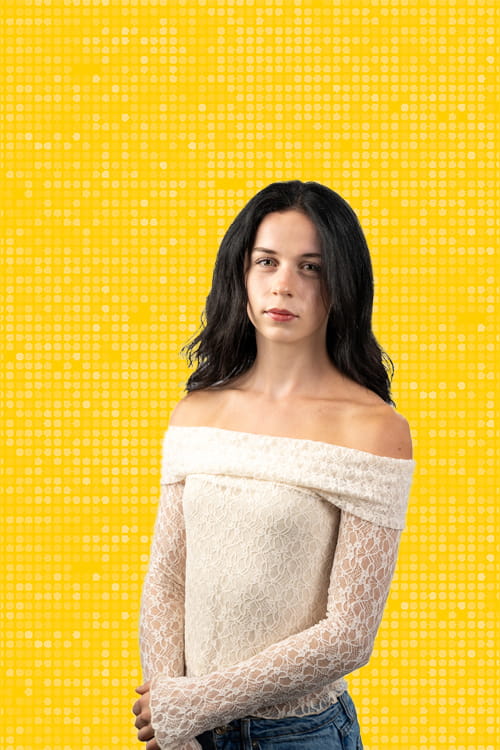
Liz Elias, Undergraduate student, microbiology and computer science
Improves immunotherapy effectiveness
“Liz is a special person. She is a talented go-getter whose potential for success moving forward is unlimited.” -Dawn Quelle, professor
Hometown: Fort Collins, Colorado
Faculty mentor/advisor: Dawn Quelle, PhD, professor of neuroscience and pharmacology, Carver College of Medicine
What is your degree program and anticipated graduation date? Bachelor’s degree in microbiology and immunology and computer science (double major), expected May 2025
Please describe your research: I work on a deadly yet rare type of cancer, called Malignant Peripheral Nerve Sheath Tumors (MPNSTs), that develops in both children and adults. My studies explore how different types of anti-cancer drugs affect the levels of a protein, called Programmed Death Ligand 1 (PD-L1), on tumor cells. Our work suggests that some drugs increase the amount of PD-L1 on tumor cells, which makes them more responsive to immunotherapies that target PD-L1. This is important because some cancers can be cured by immunotherapy, yet MPNSTs normally do not respond to such therapy.
In simple terms, why does this research matter? The loss of any human life is a tragedy and deaths from cancer, including rare cancers like MPNSTS, have a devastating effect on each afflicted person, family, and community. PD-L1 protein normally prevents a person’s immune system from fighting cancer and its expression on tumors has been associated with poor patient survival. Identifying how PD-L1 is regulated in these tumors opens the door for more effective treatment options, particularly those that are used to block PD-L1 function. Such information could be relevant to improving responses of all types of cancers to immunotherapies that work by inhibiting PD-L1.
How soon after starting at the University of Iowa were you able to participate in research? I began working in Quelle Lab during the first month of my freshman year. However, it wasn’t until my second year at Iowa that I began working with a graduate student in our group, Josh Lingo, on his thesis research project exploring sarcoma immunology.
How has being involved in research made you more successful at the University of Iowa? Doing research at Iowa has allowed me to find the career field I’m passionate about pursuing, specifically cancer biology. Cancer research involves interdisciplinary collaborations and experimental techniques. My experiences have helped me meet many amazing students and faculty members across lots of different academic programs and to discover new fields of study. As a member of the UI-MARC program, I’ve also had the opportunity to travel and pursue fascinating and meaningful research without a financial barrier.
What are your career goals and/or plans after graduation? While I’m not 100% sure what I want to do after graduation, I am currently interested in obtaining a scientific leadership position in the biotechnology industry.
Banner location: Downtown—
